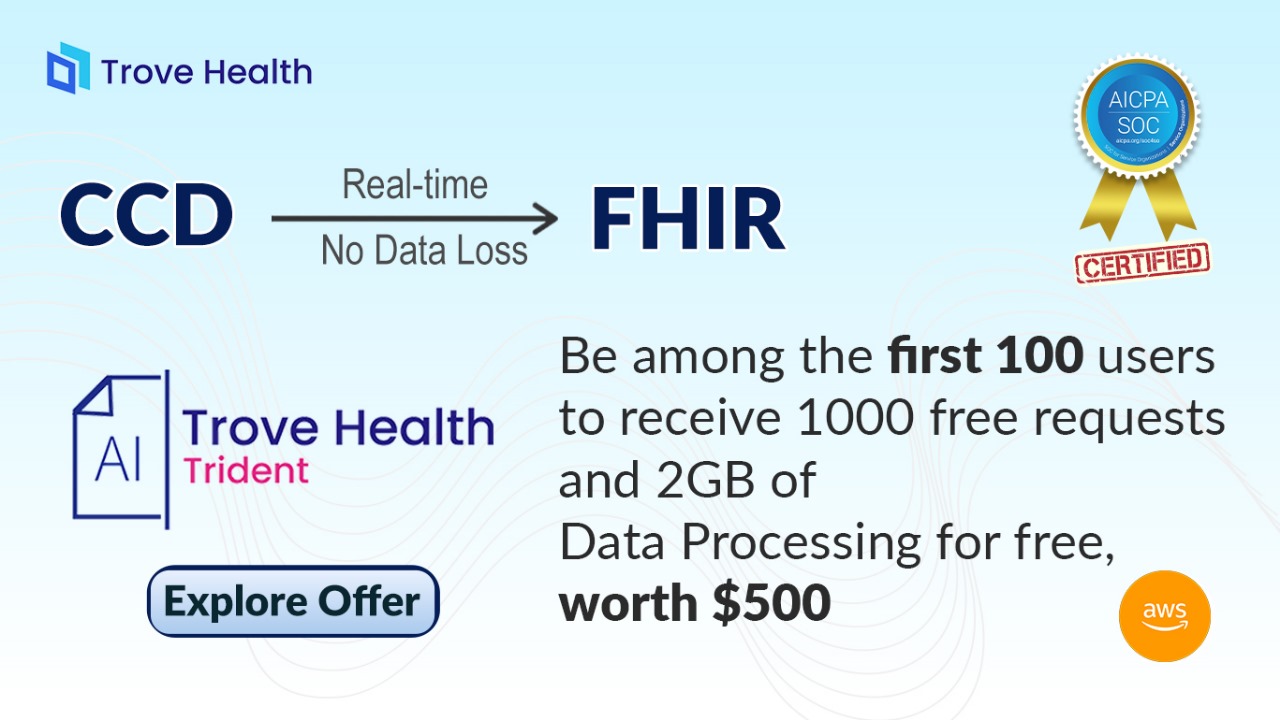What is Trusted Exchange Framework and Common Agreement or TEFCA?
Background of TEFCA
President Obama took a significant step toward resolving information blocking in 2016 by signing the 21st Century Cures Act, which requires Electronic Health Records (EHR) systems to provide a patient-facing API in order to maintain federal certification. The Centers for Medicaid and Medicare Services (CMS) issued a rule in 2020 requiring health plans and providers who receive federal funds from their programmes to take steps to make health information more accessible. The majority of the policies encourage payers to implement application programming interfaces (APIs) and data exchanges that provide secure access to their provider directories, patient claims data, and other resources, allowing data to be accessed more quickly. This defined the use case of interoperability in healthcare.
Broader goal of TEFCA
The broader goal of TEFCA was that the access to nationwide health information would give providers, patients, and payers with a more comprehensive picture of the care delivered, as well as support broader public health efforts. Patients would be able to get a consolidated e-copy of their health records while providers would get a comprehensive view of patients health from the aggregated health records from across the nation. Payers would be able to optimize the health plans to best cater to the needs to the people.
ONC and the Framework for TEFCA
On January 19, 2022, the US Department of Health and Human Services announced that ONC published the Trusted Exchange Framework, Common Agreement – Version 1, and QHIN Technical Framework – Version 1. Entities interested in becoming Qualified Health Information Networks (QHINs) can begin reviewing the requirements and deciding whether to apply voluntarily.
Trusted Exchange Framework and Common Agreement (TEFCA) seeks to create a national floor of interoperability in healthcare. The Common Agreement will establish the infrastructure model and governing approach for users in different networks to securely share basic clinical information with one another—all under commonly agreed-upon expectations and rules, regardless of network. The Trusted Exchange Framework defines a set of non-binding foundational principles for trust policies and practices that can aid in Health Information Network (HIN) exchange.
The Sequoia Project get appointed as the Recognized Coordinating Entity
ONC issued a Notice of Funding Opportunity in 2019 and subsequently awarded The Sequoia Project a cooperative agreement to serve as the Recognized Coordinating Entity (RCE) and to develop, update, implement, and maintain the Common Agreement. Since then, ONC and the RCE have collaborated to collect industry-wide stakeholder input in order to draught and refine the approach to enabling nationwide health information exchange across various health information networks. In FY 2021, ONC awarded The Sequoia Project a new round of funding of $942,000 under the RCE cooperative agreement to support RCE activities from August 2021 to August 2022. Also, health-tech vendors for healthcare interoperability were allowed to join national health exchange networks to leadership in TEFCA implementation across the US.
Trusted Exchange Framework and Common Agreement (TEFCA) seeks to create a national floor of interoperability in healthcare. The Common Agreement will establish the infrastructure model and governing approach for users in different networks to securely share basic clinical information with one another—all under commonly agreed-upon expectations and rules, regardless of network. The Trusted Exchange Framework defines a set of non-binding foundational principles for trust policies and practices that can aid in Health Information Network (HIN) exchange.
Further Reading
The National Coordinator is required by Section 4003(b) of the 21st Century Cures Act to publish the Trusted Exchange Framework and the Common Agreement on its public Internet website and in the Federal Register. The Trusted Exchange Framework and the Common Agreement are available here in accordance with Section 4003(b):
About Trove Health - Leading vendor for healthcare interoperability in USA
Trove Health offers plug-n-play API for nationwide bidirectional healthcare interoperability as per CMS guidelines for treatment access as well as patient access! With millions of records exchanged per month & thousands of Care Providers connected, Trove Health not only imports the desired records but also parses them into a format of your preference.
What Providers say about ‘Healthcare interoperability with Trove Health’
“Working in a Federally Qualified Health Center (FQHC) in Brooklyn, it is amazing to be able to access the health records of my pediatric patients using Trove Health’s Patient Atlas Dashboard. I have parents who take my patients to the local hospitals in my area for pediatric emergency care, but forget to bring the discharge paper work to their visit with me. Using Patient Atlas, I am able to access the emergency visit encounter in order to provide a continuum of care for my patients and their families in my office. As a pediatrician, I recommend other providers using Patient Atlas to access the electronic health records of their patients as well.”
Dr. Anise Joseph, MD
Board Certified Pediatrician LaSante Health CenterDid you not find what you were looking for?
Let one of our friendly support staff assist you. Please fill in the form.

